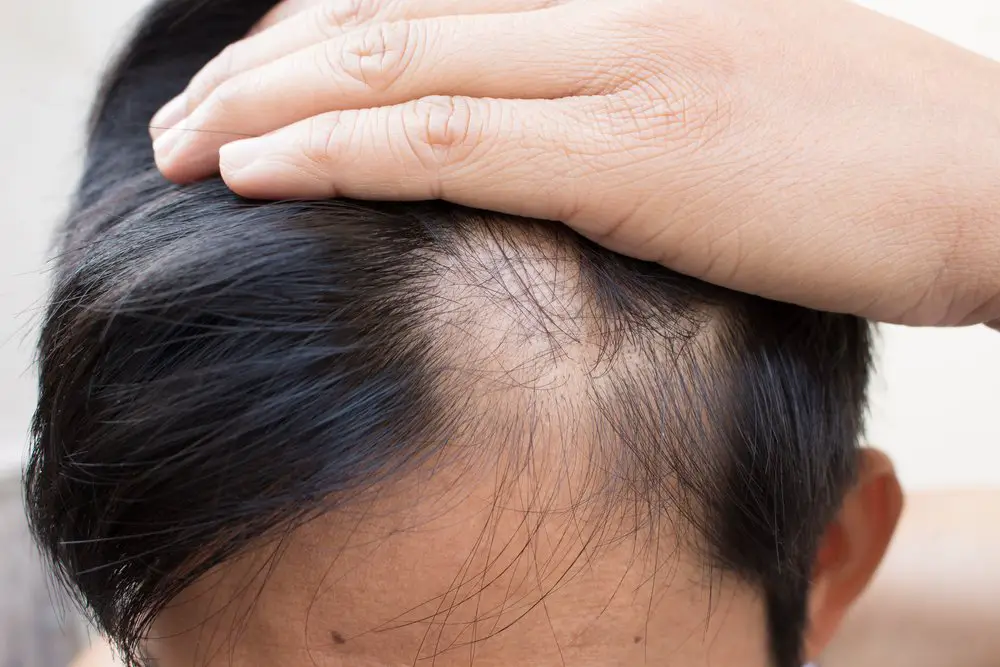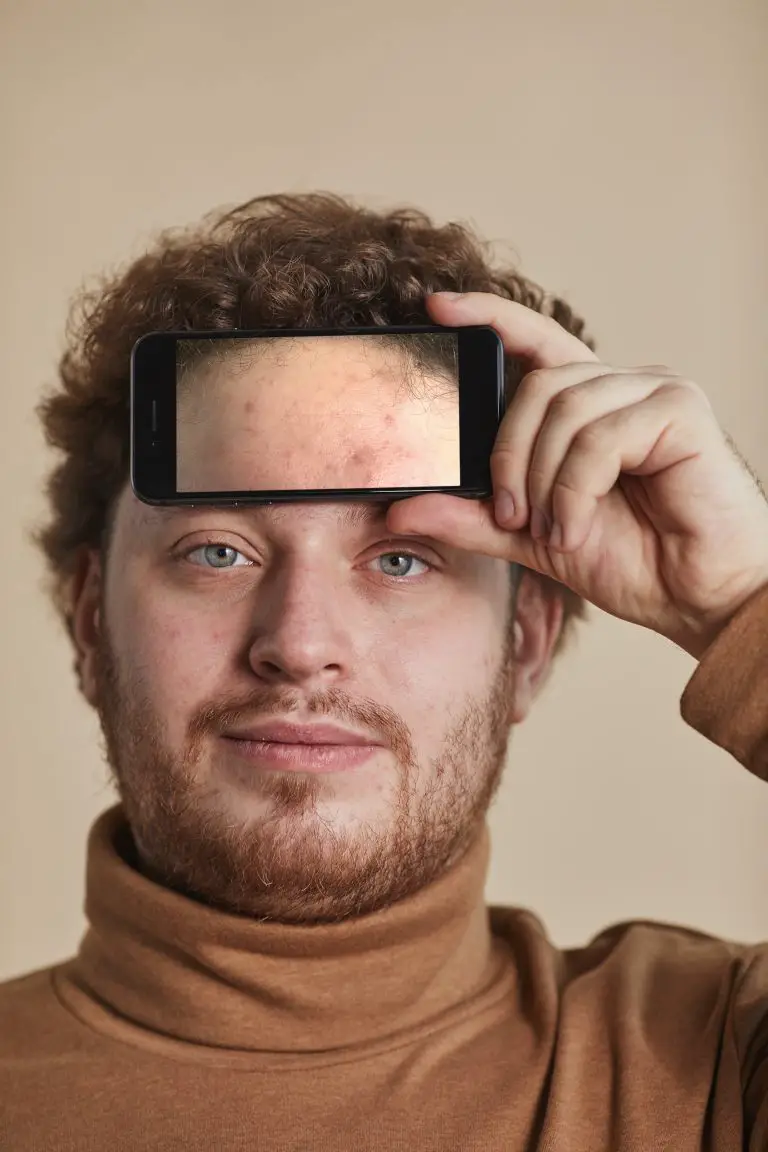
Page Contents
Acne and hair loss are both things that negatively affect the way you look. Fortunately, there are treatments for both. However, sometimes a treatment for one can worsen the other. This is the case with Accutane, which can both help and hinder your quest for beauty.
But what is Accutane, and how does it cause hair loss? More importantly, what can you do to lower the chances of having hair loss from it to keep your current hair density?
What Is Accutane?
Accutane is actually a brand name for the drug isotretinoin. Isotretinoin is primarily a synthetic derivative of Vitamin A. It is almost exclusively found in capsule form, though the dosage of it varies according to your weight, age, and other factors.
The Accutane brand was originally formulated by a Swiss healthcare company and was approved by the FDA in 1982. For a while, the Accutane prescription was pulled off the shelves in 2009 when it was linked to serious side effects.
There are many generic options for isotretinoin treatment, but other brand names of isotretinoin treatment include:
Absorica
Amnesteem
Claravis
Myorisan
Zenatane
Your primary physician can give you a prescription in high doses if your acne is severe enough, but it is most likely not going to be the brand Accutane.
What Is Accutane Prescribed For?
Though used for other things on rare occasions, Accutane is most commonly used for treating severe acne. It can treat severe acne so well that it is sometimes considered a miracle drug for acne patients.
Patients with cystic acne treat their condition with a treatment plan of four to five months. That length of time taking isotretinoin is usually the only acne treatment needed to reach the point of having no sign of acne.
Often, the acne never comes back again. Taking very high doses is thought to help increase the chances of it working permanently. Other than that, Accutane is sometimes used as a treatment for other skin conditions.
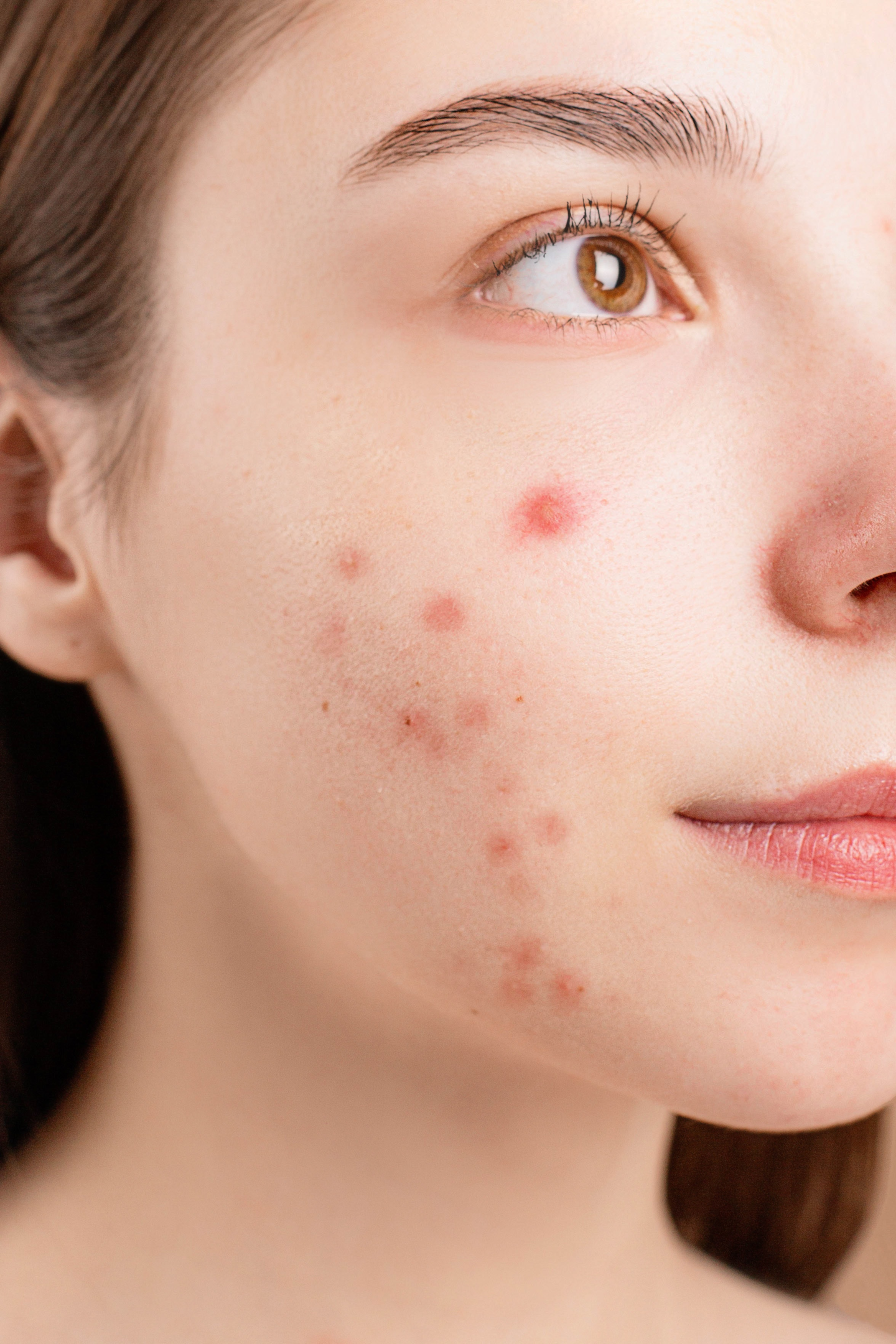
The Side Effects Of Accutane
As mentioned, Accutane was recalled at one point. The side effects of isotretinoin that caused this included things like Chron’s disease and birth defects when pregnant women took it.
Though the latter side effect is extremely serious, it is also why large amounts of Vitamin A should be avoided during pregnancy. This is also why isotretinoin is only available when prescribed by a doctor and never for permanent usage.
The common side effects of it are milder things, including:
Dry skin
Peeling skin
Chapped lips
Sun sensitivity
Headaches
Tiredness
Sweating
Nausea
Dry nose
Nosebleeds
Hair loss
Imbalanced hormones
Mental health problems
Though these are the more common options, other potential side effects that aren’t mentioned are possible. Even though it is used to treat acne, these undesirable side effects are why it is a prescription medication that is usually only used as a last resort.
Other medications that are often used for acne vulgaris first include benzoyl peroxide, salicylic acid, azelaic acid, clindamycin, dapsone (Aczone), and Proactiv. These do have side effects as well, but they are usually milder.
Doctors are instructed to keep an eye on their patients with acne treated with isotretinoin to ensure they don’t start getting suicidal thoughts.
You should also know that you aren’t allowed to donate blood while taking isotretinoin. This is because donated blood may be given to a pregnant woman, which is potentially bad for her baby.
How Does Accutane Cause Hair Loss?
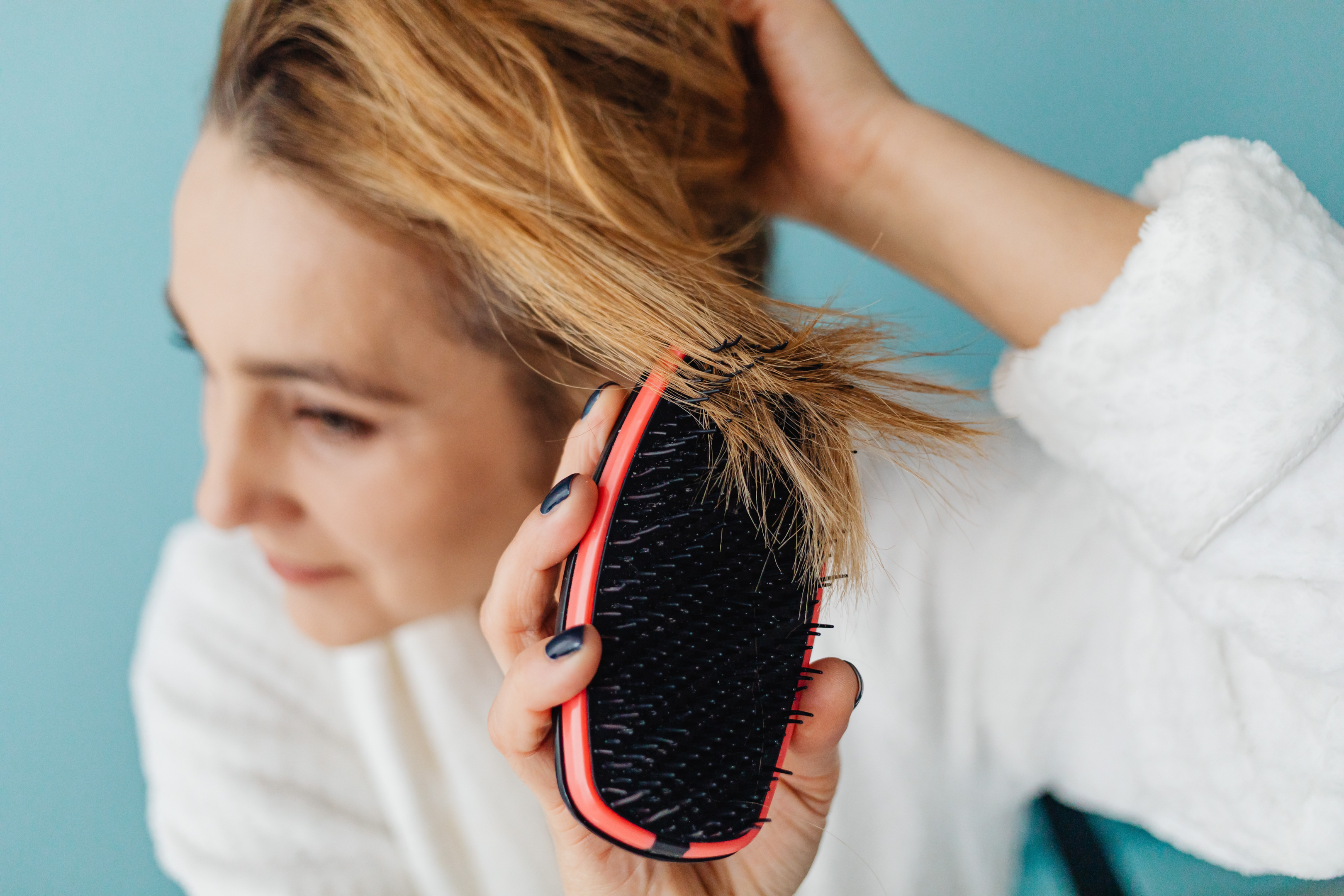
Isotretinoin-induced hair loss is possible because of a few reasons. The main two are that it interferes with your scalp making sebum, and it also causes a couple of vitamin imbalances.
In either case, Accutane hair loss was usually resolved when the person stopped taking isotretinoin. However, in some cases, hair loss continued for a short while, even after someone stopped their isotretinoin therapy.
Most cases of hair thinning caused by this drug occur when taking high doses of it. However, some people are naturally sensitive to Accutane, making it more likely to cause thinning hair.
Interfering With Sebum Production
Accutane hair loss is most often caused by it interfering with your sebum production. Isotretinoin works by drying up your skin since acne thrives in oily conditions. This is why one side effect of it is dry skin and also why it can dry out your hair.
Sebum is the oily substance your scalp makes to keep your hair follicles healthy. Not making enough sebum means your hair dries out and becomes brittle.
This leads to hair thinning as your hair shafts break, a problem that is compounded due to the fact that sebum works as a natural detangler. Therefore, its absence makes your hair more likely to knot, which leads to a few strands breaking when brushing your hair.
Vitamin Imbalances
Since isotretinoin is made of Vitamin A, there is a chance you can get too much of this vitamin in your blood. Too much Vitamin A can cause hair loss.
It basically makes your hair shoot through its growth phase far too quickly. This makes it fall out in its resting phase sooner than it should, and it means your hair takes longer to recover. Hair loss caused because of this is similar to telogen effluvium.
Additionally, Accutane can also cause a deficiency of Vitamin B. Why it does this is not known. Any vitamin deficiencies will almost always negatively affect your hair in some way.
Hormone Imbalances
According to the National Library of Medicine, Isotretinoin can directly affect the amount of hormones your pituitary glands make. Though this helps get rid of acne, any changes in your hormone levels affect your hair cycle.
Therefore, the hormone suppression taking isotretinoin can cause may lead to temporary hair thinning. It is possible your normal hair cycle can resume after your body adjusts to the new hormone levels.
What To Do About Accutane Hair Loss
As mentioned, usually Accutane causes temporary hair loss, not permanent. That said, taking action to promote hair growth may help prevent hair loss before it happens.
For starters, you should pay attention to what your hair looks like before you start taking isotretinoin. That way, if you do have hair loss because of it, you will know it as soon as possible.
The sooner you treat hair loss, the less hair you will lose and the faster you’ll get it growing again.
Talk To A Doctor
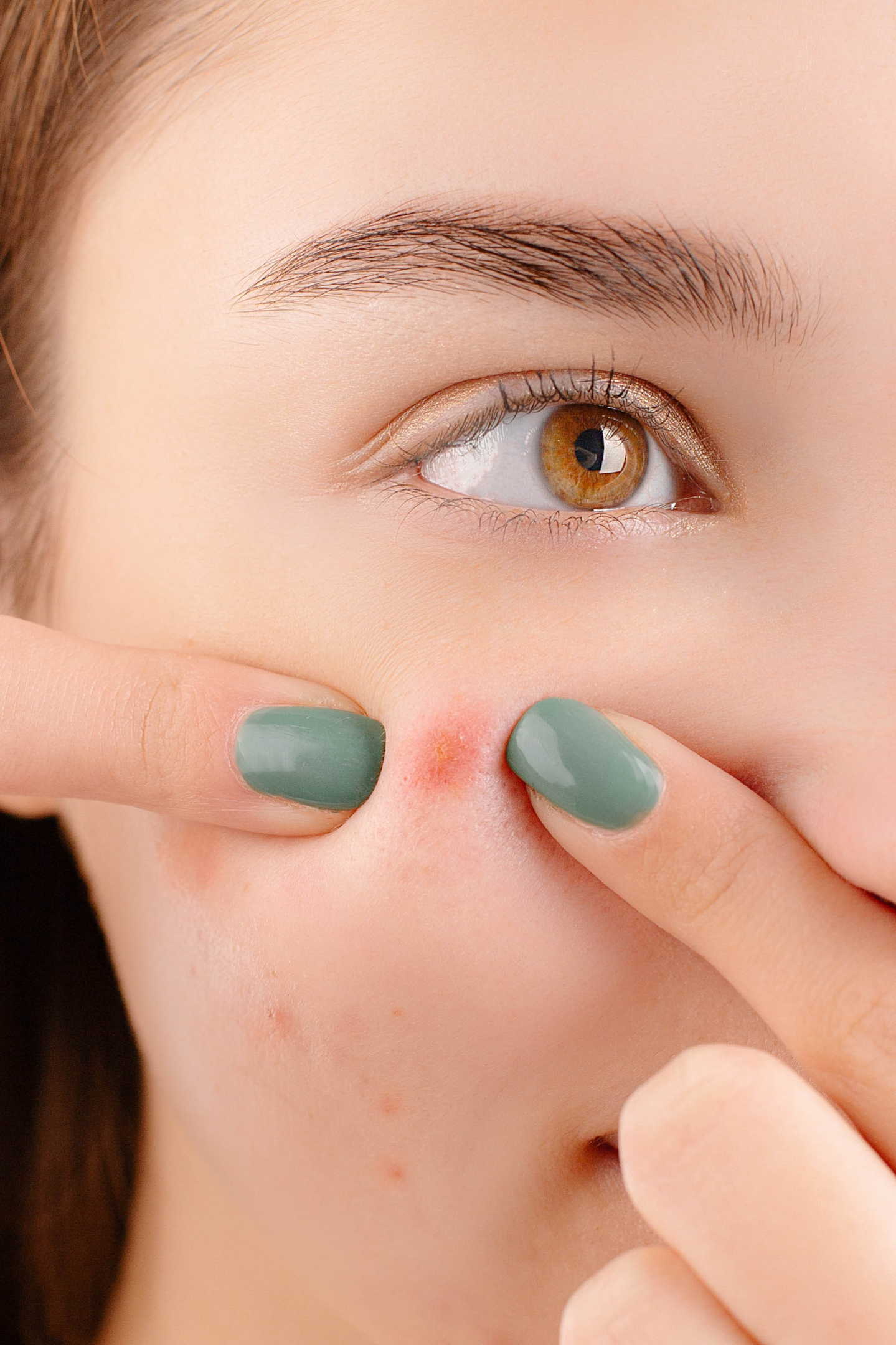
Accutane-related hair loss is something you should talk to your doctor about, regardless of if it is severely affecting your hair growth or not. If your severe acne means your doctor prescribed a high dose of Accutane, they may allow you to take a lower dosage if you ask due to hair loss.
This can help minimize the hair thinning you experience while taking isotretinoin. You should keep taking the dosage prescribed until you can talk to your physician about it since acne treated with isotretinoin requires you to take consistent doses.
In some cases, when your hair loss is caused by hormonal problems, their professional medical advice includes finasteride prescribed on top of the Accutane. Finasteride can help you keep healthy hair while you are using this acne-fighting drug.
Cover Your Scalp
One of the side effects I mentioned of Accutane is that it can make your skin sun sensitive. You’ll know you have this symptom if you develop peeling skin. If it does this to your scalp, your hair follicles can be damaged by the sun.
This will lead to hair loss if you don’t protect your head. So, wear a hat, use sunscreen, or something else to keep the sun’s UV rays from your hair.
Watch Your Vitamin Intake
With isotretinoin increasing your Vitamin A levels, you should make sure you don’t take anything else with A in it while you are taking Accutane. To prevent hair loss, check your daily vitamins to make sure you avoid Vitamin A.
Since Accutane can cause a Vitamin B deficiency, you should increase how much of this vitamin you take. This can be either done with a healthy diet or supplement use.
Vitamin B supplements are very easy to find, both in complexes and individually. Since it is specifically Vitamin B9, which is folate, then folate-rich foods like broccoli, bananas, etc., are good to eat as well.
You should also take extra Vitamin E and other ones like biotin that help hair health by increasing sebum production. More of these nutrients can help Accutane users by counteracting the dryness their isotretinoin treatment may cause their hair follicles.
Take Care Of Your Hair Follicles
If you do everything else I recommend and still suffer from hair loss, it may not be isotretinoin hair loss. There are many other problems that can cause temporary hair loss, including stress and pattern baldness.
There are also many things you can do to encourage hair growth, no matter what the cause of your hair loss is. These include:
Eating a healthy diet
Regular exercise
Applying nourishing oils to your scalp
Reduce stress levels
Use hair products for growth
Unless your scalp makes its own oils in excess, coconut oil is great for your hair health, as it moisturizes and protects your hair strands. This is why it is often an ingredient in hair regrowth shampoos and conditioners.
While you are taking Accutane, you should also avoid any other products that can cause hair loss. Some styling products that are loaded with chemicals can increase your hair fall, so you should exclude these from your hair care routine.
Final Thoughts
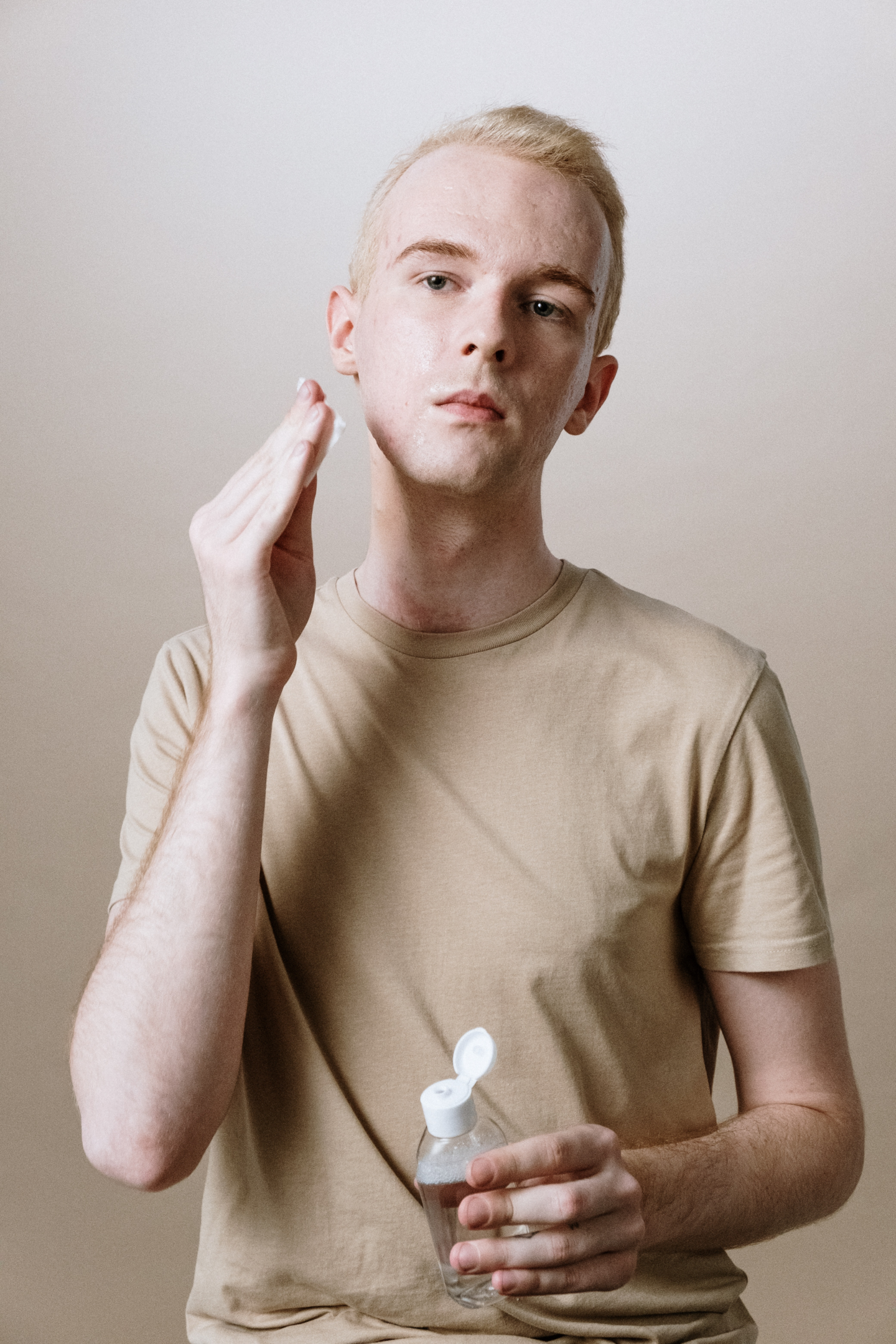
Though permanent hair loss from Accutane is unlikely, you should still treat any thinning hair as very serious and do something about it immediately.
Have you had hair loss while taking the drug mentioned here? Did you end up with permanent hair loss, or were you able to get your hair growth rate back up? Please let me know any tips you found helpful for your hair.


